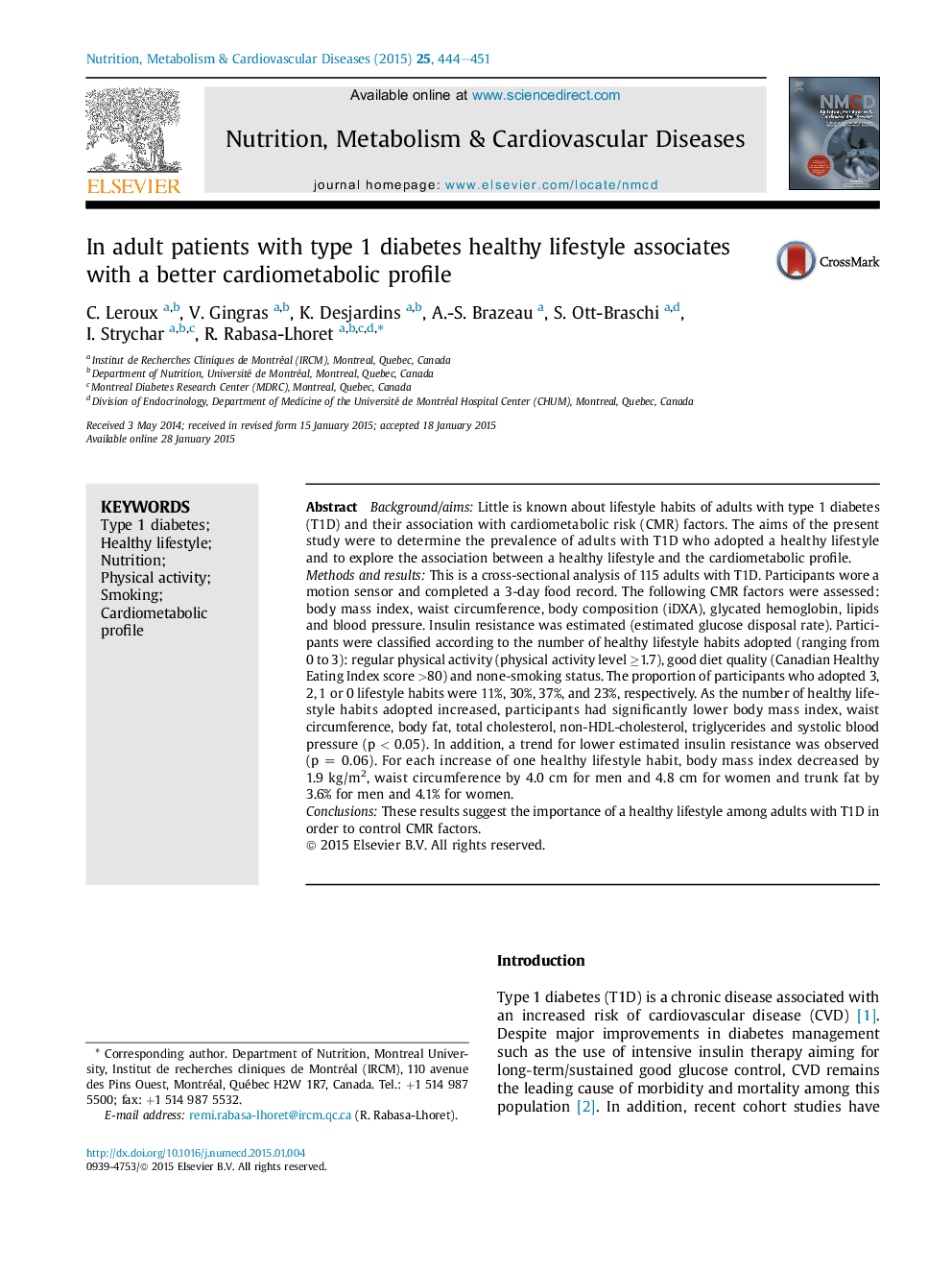| Article ID | Journal | Published Year | Pages | File Type |
|---|---|---|---|---|
| 3001811 | Nutrition, Metabolism and Cardiovascular Diseases | 2015 | 8 Pages |
•We objectively assessed the lifestyle habits of adult with type 1 diabetes.•We accurately measured of a large number of cardiometabolic risk factors.•Eleven percent of the participants adopted an overall healthy lifestyle habits.•Healthier lifestyle is associated with improved cardiometabolic risk profile.
Background/aimsLittle is known about lifestyle habits of adults with type 1 diabetes (T1D) and their association with cardiometabolic risk (CMR) factors. The aims of the present study were to determine the prevalence of adults with T1D who adopted a healthy lifestyle and to explore the association between a healthy lifestyle and the cardiometabolic profile.Methods and resultsThis is a cross-sectional analysis of 115 adults with T1D. Participants wore a motion sensor and completed a 3-day food record. The following CMR factors were assessed: body mass index, waist circumference, body composition (iDXA), glycated hemoglobin, lipids and blood pressure. Insulin resistance was estimated (estimated glucose disposal rate). Participants were classified according to the number of healthy lifestyle habits adopted (ranging from 0 to 3): regular physical activity (physical activity level ≥1.7), good diet quality (Canadian Healthy Eating Index score >80) and none-smoking status. The proportion of participants who adopted 3, 2, 1 or 0 lifestyle habits were 11%, 30%, 37%, and 23%, respectively. As the number of healthy lifestyle habits adopted increased, participants had significantly lower body mass index, waist circumference, body fat, total cholesterol, non-HDL-cholesterol, triglycerides and systolic blood pressure (p < 0.05). In addition, a trend for lower estimated insulin resistance was observed (p = 0.06). For each increase of one healthy lifestyle habit, body mass index decreased by 1.9 kg/m2, waist circumference by 4.0 cm for men and 4.8 cm for women and trunk fat by 3.6% for men and 4.1% for women.ConclusionsThese results suggest the importance of a healthy lifestyle among adults with T1D in order to control CMR factors.
